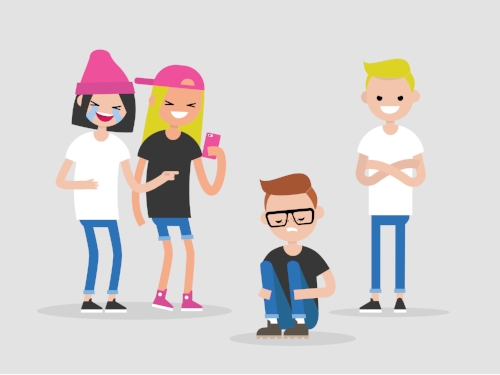Rude vs Mean vs Bullying Behaviors
Singe Whitson, a child and adolescent therapist, spoke about the importance of identifying rude and mean behavior compared to bullying behaviors. It can be easy to categorize bad behavior as bullying, but it is important to not overgeneralize this term. Although a therapist never wants to minimize a client's situation, we all must learn the difference between these terms in order to not simplify the term "bullying". In reality, bullying is a very serious issue.
Whitson defines rude as, “inadvertently saying or doing something that hurts someone else". These may be seen as social errors such as, burping in someone's face, cutting in line, or kicking a ball at someone. The problem with this is that rude situations are often spontaneous. A child does not mean to burp in someone's face, but without meaning to do so, they are hurting someone else.
Being mean involves “purposefully saying or doing something to hurt someone once (or maybe twice).” Whitson explains, “mean behavior very much aims to hurt or depreciate someone….Very often, mean behavior in kids is motivated by angry feelings and/or the misguided goal of propping themselves up in comparison to the person they are putting down.” Although both mean and rude behavior needs to be corrected, it is important to understand how they are different from bullying.
Bullying is “intentionally aggressive behavior, repeated over time, that involves an imbalance of power….Kids who bully say or do something intentionally hurtful to others and they keep doing it, with no sense of regret or remorse -- even when targets of bullying show or express their hurt or tell the aggressors to stop.” There are many different forms of bullying including, physical, verbal, relational, and cyberbullying. The reason bullying is worse than mean or rude behavior is because of the repeated actions that leave the person being bullied feeling helpless.
Although bullying has become a topic of greater interest, it can never be talked about enough. Bullying has many long lasting effects on children and adolescents. It is important for parents to be aware of the signs that your child is bullying someone, or being bullied. Preventing bullying will make a difference.
Contact us for more information on individuals who are suffering from bullying, people who may have lasting effects such as anxiety or depression, or for help with children who are struggling.
~Written by Allison Parker and Tanya L. Hilber, PsyD
Reference: “A Mighty Girl.” Www.amightygirl.com, 16 Apr. 2018, www.amightygirl.com/?https=true.

